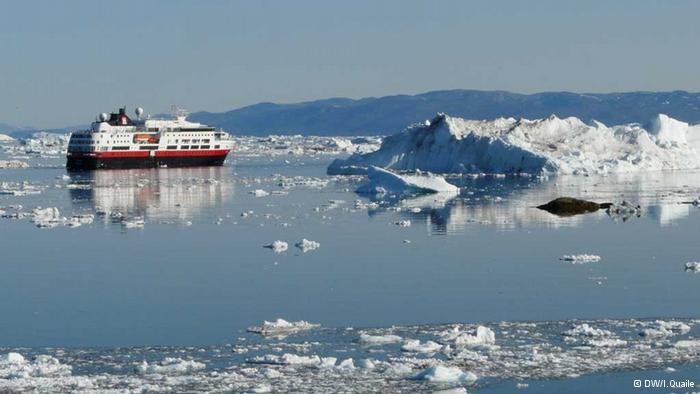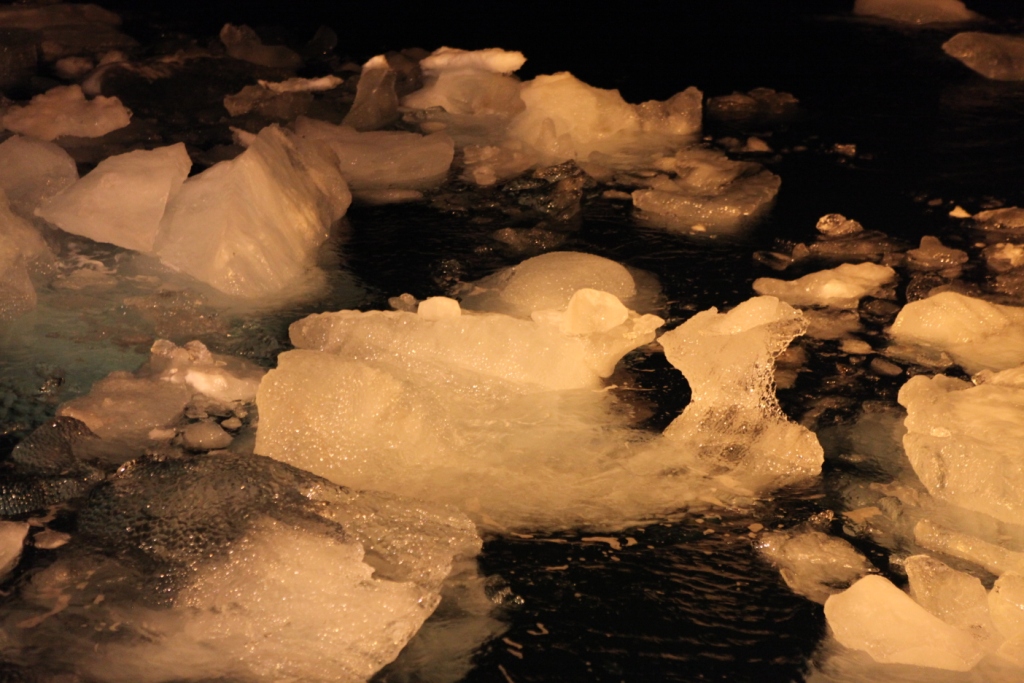Trudeau and Obama’s Arctic Endeavours

Obama and Trudeau want to protect the Arctic against climate change and harmful development (Pic: I.Quaile
Sometimes there are pleasant surprises to end the week. An announcement by the US and Canadian leaders that they are joining forces to take measures to protect the Arctic would come into that category.
Given the US role as a top emitter and Canada’s extremely negative position on climate action under the old Harper government, this seems to me a very important announcement. Obama, unfortunately, is on his way out. Trudeau, we know, has just come in.
I was interviewing Frida Bengtsson from Greenpeace on the phone this morning about a campaign to keep industrial fishing out of the Arctic. I asked her how she judged the announcement. This was her response:
“I think it shows some good, clear leadership on Arctic protection. Now it’s up to the implementation. We’re hoping they will set the bar really high on protection and that fishing will be included and that areas of the Arctic will be off limits to any industrial activity, including oil and gas.”
As always, the proof of the pudding is in the eating.
In the background, the two countries have pledged to sign the Paris climate deal “as soon as feasible”. Hm. That sounds a little wishy-washy to me. But they also say they want to improve cooperation on energy issues. If it means cutting emissions rather than building something like the Keystone XL crude oil pipeline to bring heavy Canadian oil to the US, it’s extremely good news for the climate. Obama rejected the project last year. It was promoted by Trudeau’s predecessor, Stephen Harper.
Canada and the USA have now committed to cut emissions of methane by 40 to 50 percent below 2012 levels by 2025. Given that methane is around 20 times more powerful than CO2 as a greenhouse gas, that is an important step. The oil and gas industry is the single largest source of methane emissions in the US and globally. Obama and Trudeau also announced they plan steps to fight climate change in the Arctic, and to speed development of green technologies.
The US Environmental Protection Agency, EPA is to start developing regulations for methane emissions from existing oil and gas sources immediately and “move as expeditiously as possible to complete this process”. Obama has made extensive use of the EPA during his time in office, in his attempt to combat opposition to his pro-environment and climate moves from Republicans.
Last month the US Supreme Court ruled to delay the implementation of Obama’s Clean Power Plan to fight emissions from power plants. But the President says the plan to cut methane emissions is on secure legal grounds.
In the Arctic, the countries agreed to set standards on shipping, fishing and oil and gas exploration and development, and to base decisions on scientific evidence. Development is only to occur “when the highest safety and environmental standards are met”.
In the Washington Post, mark Brownstein, vice president of climate and energy at the Environmental Defense Fund, said the proposed cut in methane emissions would be like “closing a third of the world’s coal plants”.
“This is arguably the single biggest, most impactful, most immediate thing we can do to slow the rate of warming right now”, Brownstein said.
Obama and Trudeau pledged to safeguard the Arctic with initiatives to protect more than 10 percent of the marine areas, designate shipping corridors with low environmental impact, and establish new offshore oil and gas leasing plans.
Clearly, both governments are recognizing the Arctic as a priority. Of course full Arctic protection requires action by other Arctic nations, like Russia, Denmark and Norway.
Increasing industrial activity in the Arctic brings an increased risk of potential collisions, oil spills, pollution, black carbon and underwater noise to disturb wildlife.
This joint announcement is a clear demonstration of how much political leadership can do when it comes to climate issues,and just how important is to have people in power who understand what drives climate change and why it is dangerous, and are willing to commit to climate action in the face of opposition from fossil-fuel-based industries, demonstrating at the same time that climate protection is actually good for the economy.
I interviewed Alexander Ochs, Senior Director for Climate and Energy at the Worldwatch Institute recently about implementing the Paris Agreement and the “Energiewende”, the transition to renewable energy. We also discussed the US position on climate.
“If we talk about the US, there is not one US player. Unlike many other countries where there is a consensus across parties, across people of different ideologies, that does not exist in the US, it’s a highly partisan issue. Candidates for presidency and US congress take positions almost exactly along party lines.”
Clearly, the result of the US presidential election will have major implications for climate action.
“The results of the elections on the federal level, as well as their impact on international cooperation on climate and energy, will be very dramatic. Having said that, even under Republican leadership, – which would have dramatic impacts – there will be many actors in the United States that will continue their action on the ground. Whether it’s municipalities or cities –more than a thousand mayors are supporting the Kyoto goals for example, widely unnoticed by Europeans – or on the state level, or individuals. So you do see a lot of things happening on the ground in the United States, so it’s often unfair to these people if we reduce the US to the presidency.”
That is an encouraging thought. Leadership is essential. But so, too, is action from the bottom up.

















